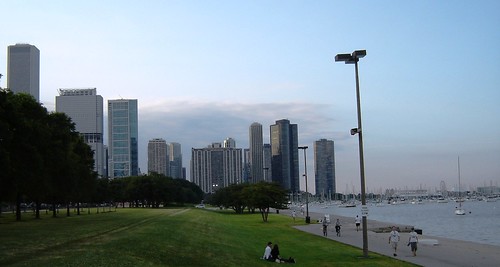This article is more than 5 years old.
It’s fairly frantic here in Chicago but I am enjoying a moment of quiet, waiting for the next session to begin and I even scored access to the only plug in the room! Friday seems so long ago but it started with an appointment to meet with someone from Lyrasis to talk about a potential consulting engagement at ZSR. Then I attended OCLC’s Symposium on the user experience. I am not a big fan of OCLC but I do enjoy going to the symposia that they put on the Friday before ALA officially starts. The program featured Joseph Michelli, author of The Starbucks Experience and When Fish Fly about the Pike Place Fish Market. Then there was a panel of librarians who gave examples about designing services around the library user experience. I actually think ZSR is way far out there in terms of creating a good user experience. In the evening, we had dinner at Blackie’s, a former speakeasy, that a friend from Wake told us about and then spent the evening strolling around Grant and Millennium Parks, again watching the Chicago Summer Dance Festival (and walking through the jelly bean for you, Giz).

Saturday has been a rush. Up at 8:00 am to hear about the Google Book Settlement. I’ve recounted in past posts the basics of the deal, as I tend to go to GBS sessions at whatever conference I attend. The new angle of this presentation was more on the orphan works implications. Orphan works don’t get a lot of love (that’s why they are orphans) but they are at the center of the controversy. Many fear that Google will get a monopoly on the use (and sale) of orphan works, but as the law professor speaker pointed out, how much harm would there actually be? As authors step forward to claim the royalties on out-of-print works, the number of orphans will inevitably decrease and the ones that are left will be the ones no one cares about, so is it really such a tragedy if Google makes them available? Great point.
Next session was about the Open Library Environment (OLE) project, on which we at ZSR are fringe followers. The new information I got here was about the move to Phase II at the end of this month, building on the work of the Kuali project for enterprise level connections. They are not planning to design a discovery layer, since there are so many good open source options available, VuFind first among them. That made me feel like we are on the right track. They are still looking for Build Partners, though with the entrance fee to this level of participation being around $200,000, they have been slow in coming.
OK, the next program is starting, so More Later…
